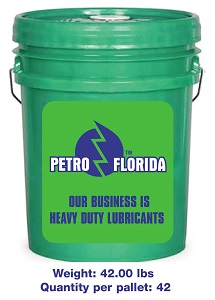Description
ADDITIVES AND ADDITIVES FOR ENGINE OILS
Over the past decade, a large number of different ADDITIVES TO ENGINE OILS have appeared on car markets, service stations and workshops. In advertising documents, such drugs are presented as a panacea for all car diseases.
We hope that the information below will help you in many cases to make the right decision.
why do you need an additive oil?
Until 1933, lubricants for internal combustion engines in the world used oil without additives. In connection with the creation in the United States of the Caterpillar company of diesel engines with supercharged, the problem of burning piston rings became aggravated, for the solution of which, special diesel oils with detergent (detergent) additives based on aluminum naphthenates were developed for the first time.
Almost simultaneously with the problem of increasing the detergent properties of oils, the problem arose of increasing their oxidative stability at elevated operating temperatures. The main disadvantages of internal combustion engines include low efficiency, not exceeding 30% for gasoline and 40% for diesel engines. Due to the necessity of using in these engines a forced cooling system up to half the thermal power generated by the combustion of fuel is carried away with the cooling liquid. The lower the temperature of the coolant, the more such losses.
Therefore, the main direction of increasing the efficiency. engines is considered an increase in the temperature regime of their operation, and in the future – the creation of an adiabatic engine, which ensures maximum utilization of the heat of the combusted fuel without removing heat from the core. But for high-powered (heat-loaded) engines oil oils are not suitable, which are already oxidized at 120 ° C. To solve this problem, since about 1940, antioxidant additives have been applied.
The most important characteristic of motor oils is their viscosity. The viscosity of the oil depends on its sealing properties, the consumption of oil for carbon monoxide and external leaks, the pumpability of the lubricating system, the starting qualities of the engine, the realization of fluid or boundary friction in various friction assemblies (and thereby their wear). Viscosity of petroleum oils with a temperature change in the range from -20 0 C to 100 0 C decreases by a thousand or more times. Such oils can not be used for year-round operation of the engine: if it allows operation at high temperatures, it is impossible to start the engine at low temperatures and vice versa.
To operate the engine at high operating temperatures and reliably start it at low temperatures, since 1951 all-weather oils have been produced. Reducing the viscosity dependence of these oils on temperature is achieved by combining a low-viscosity base base (which is responsible for low viscosity properties of the oil at low starting temperatures) and special polymeric viscous additives providing the required viscosity at elevated operating temperatures. Modern engine oils are a balanced colloidal solution of many functional additives in the base oil or synthetic oil and only because of this are able to cope with their duties in the engine.

